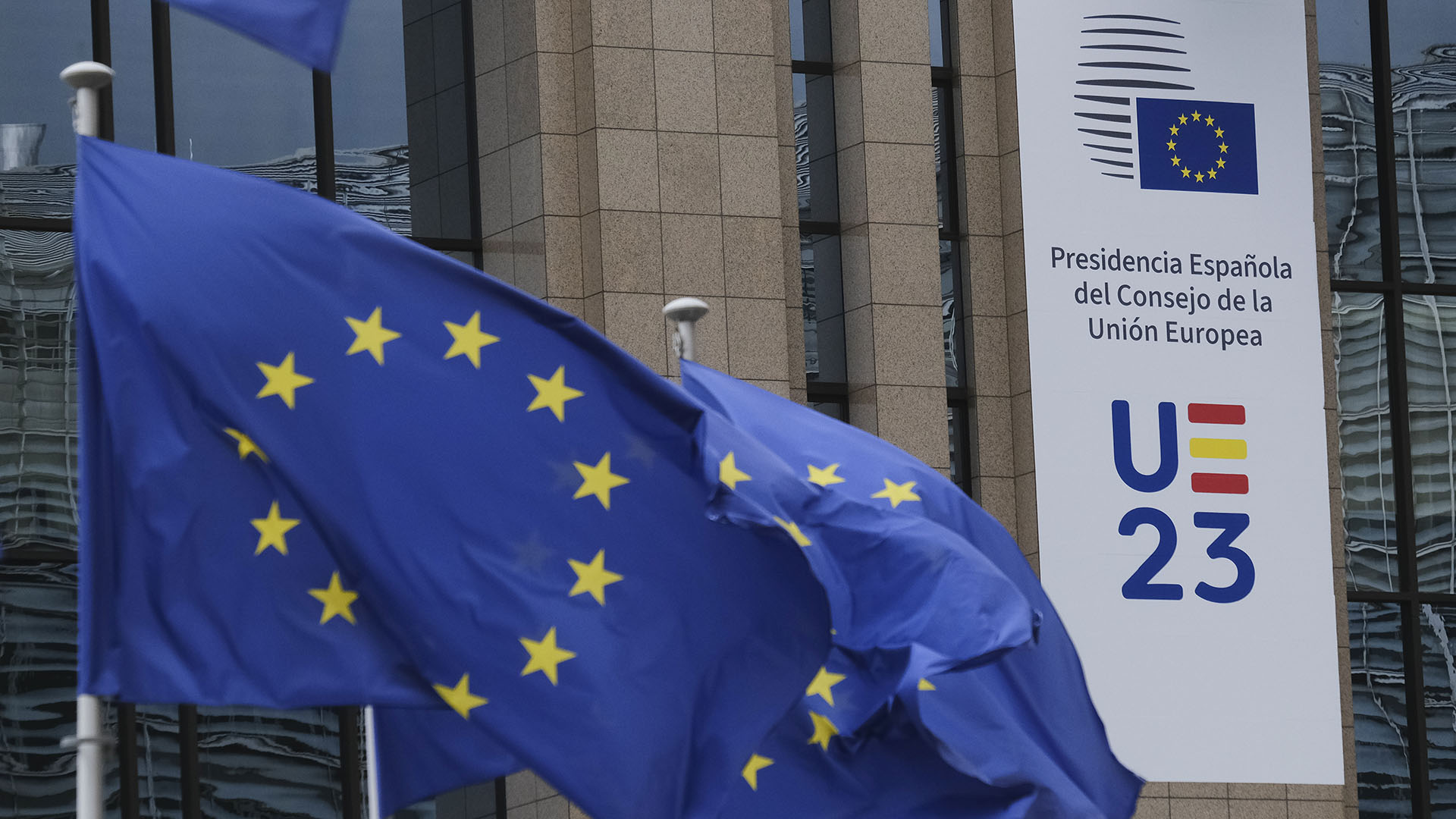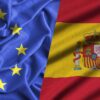For the fifth time, Spain holds the Presidency of the Council of the European Union, one of the EU’s seven most important institutions.
What are Spain’s priorities and how will they be translated into concrete actions? What does it mean for Spain to fill this position in terms of influence, decision-making and advancing the European agenda? How might it be conditioned by the national and international context?
The Elcano Royal Institute contributes to the analysis of Spain’s priorities for the Presidency with this special dossier.
Ten principles for Spain’s Presidency of the Council of the European Union 2023
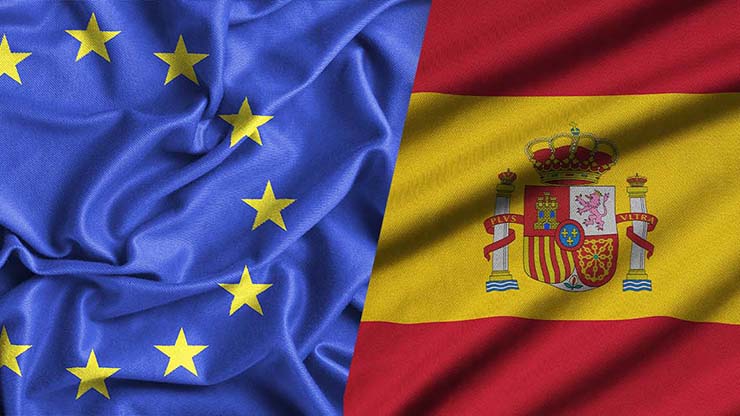
Prepared by the Elcano Royal Institute expert’s team, these Principles review the Spanish Presidency through the main topics of Elcano’s research agenda.










The analyses
Spearhead?: Spain, Europe and the battle for the global South. Luis Simón. 28 December 2023.
Fabian Zuleeg: Spanish Presidency of the Council of the EU and the future of the strategic autonomy. 22 December 2023.
The Spanish Presidency of the Council of the EU and enlargement. Alice Cunha. 13 December 2023.
EU enlargement and regional cooperation: a conversation with Majlinda Bregu. 1 December 2023.
The geopolitics of Generative AI: international implications and the role of the European Union. Raquel Jorge Ricart, Pau Álvarez-Aragonés. 27 November 2023.
Spain’s European policy: development and priorities. Raquel García, Ignacio Molina, (coords.). 30 October 2023.
European industrial policy: the lessons from NGEU in the new geopolitical framework, ‘more funds are not enough’. Juan Moscoso del Prado. 21 September 2023.
Investing and innovating? Spain and the European Defence Fund. Daniel Fiott. 28 August 2023.
Development aid and geopolitics: the EU’s Global Gateway initiative. Raquel Jorge Ricart, Mario Esteban, Ugo Armanini, Lara Lázaro Touza, Ignacio Urbasos Arbeloa, Iliana Olivié, María Santillán O’Shea. 10 August 2023.
The European Green Deal as a driver of EU-Latin American cooperation. Alina Averchenkova, Lara Lázaro Touza, Gonzalo Escribano, Caroline Prolo, Luis E. Gonzáles-Carrasco, Sandra Guzmán Luna. 7 August 2023.
Reindustrialising Europe: synergies of the Single Market. Michele Chang. 17 July 2023.
An insufficient reform of the EU’s fiscal rules. Enrique Feás. 19 June 2023.
A stellar moment? Spain, strategy and European space. Daniel Fiott. 15 February 2023.
Past Presidencies
- 1 Jan 2010
Spanish Presidency of the Council of the European Union 2010
The economic and financial crisis and the implementation of the Treaty of Lisbon set the agenda for the fourth Presidency, this time together with Belgium and Hungary in the new system of a trio of rotating presidencies for 18 months. First semester, 1 January to 30 June 2010.
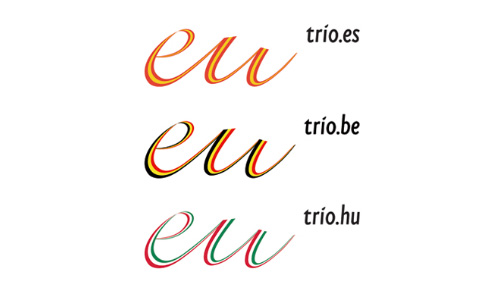
- 1 Jan 2001
Spanish Presidency of the Council of the European Union 2002
The programme of the third Spanish Presidency was marked by the international scenario following the 9/11 attacks, the enlargement to the East and the introduction of the euro as a common currency. First semester, 1 January to 30 June 2002.
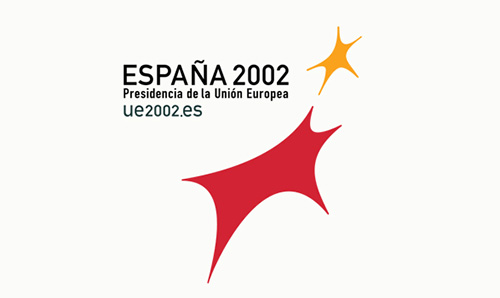
- 1 Jul 1995
Spanish Presidency of the Council of the European Union 1995
The priorities of the Spanish Presidency focused on the economic relaunch of Europe, citizen participation, external relations and the planning for the 1996 Intergovernmental Conference. Second semester, 1 July to 31 December 1995.
- 1 Jan 1989
Spanish Presidency of the Council of the European Economic Community (EEC) 1989
Spain takes over the Presidency of the EEC Council for the first time. At that moment, the European Economic Community comprised 12 Member States. The conclusions of the first Presidency were presented at the Madrid European Council. First semester, 1 January to 1 July 1989.
Events
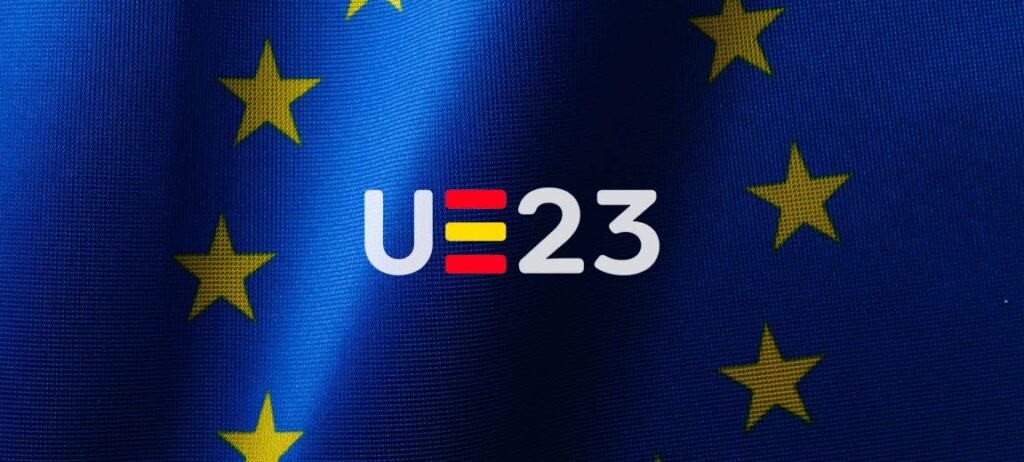
Workshop “Spain’s Presidency of the Council of the EU: A Strategic Assessment”. Madrid, Spain. 19 December 2023.

Webinar ‘European outlook/s on the Indo-Pacific in the context of the Spanish presidency of the EU’. Online. 30 November 2023.
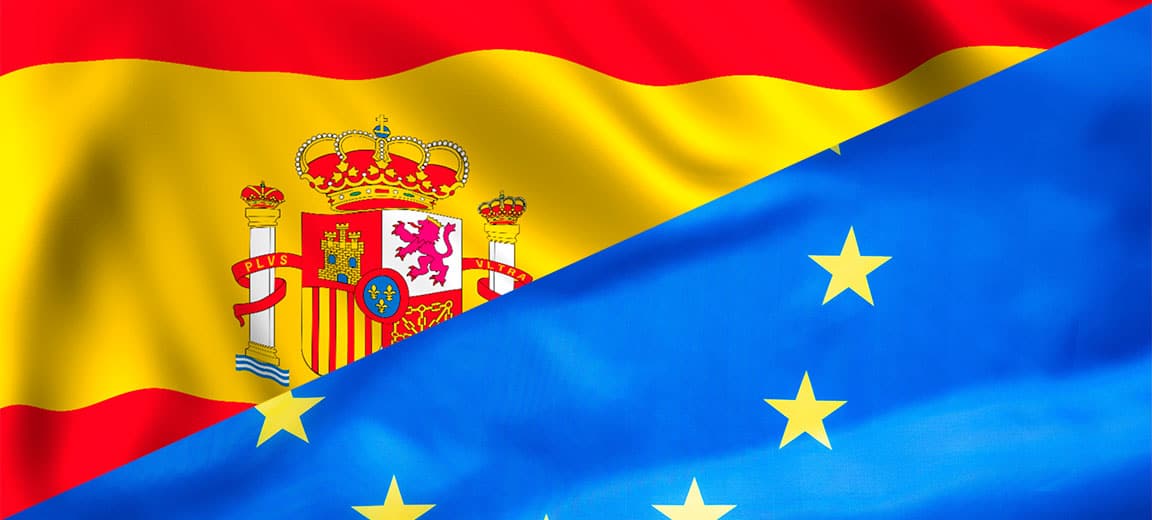
Presentation and roundtable Elcano Policy Paper “Spain’s European policy: elaboration and priorities”. Madrid, Spain. 26 October 2023.
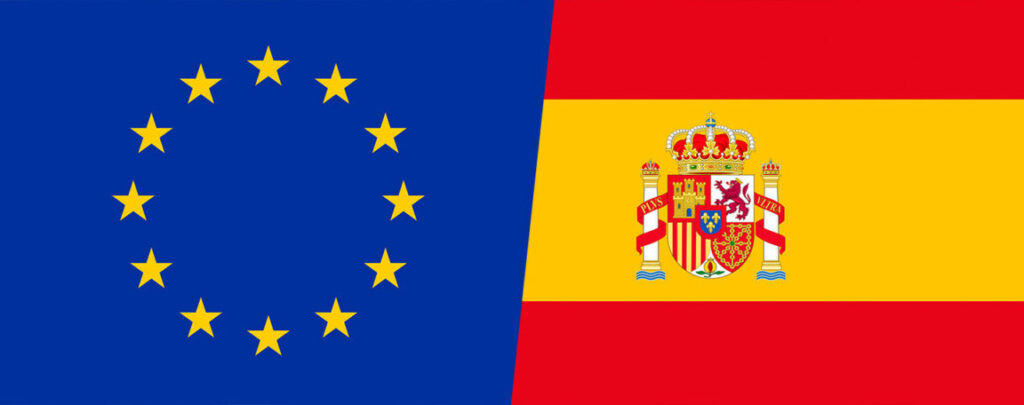
Seminar “The Spanish Presidency of the Council and the future of the European Union”. Washington, DC, US. 28 September 2023.

Seminar “Implementing the Strategic Compass. Challenges and opportunities”. Toledo, Spain. 30 August 2023.

Spanish Pre-Presidency Conference
Madrid, Spain. 1 and 2 June 2023.
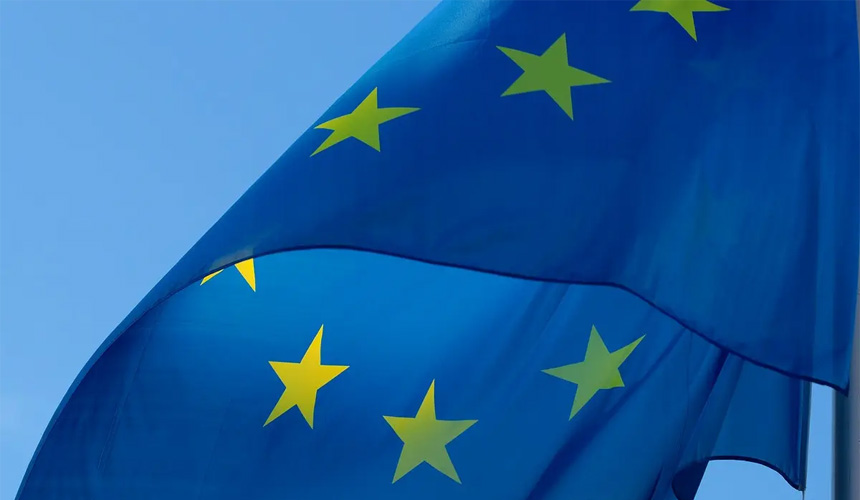
The future of the EU as a global development actor: Building alliances with the Global South in a polycrisis world Berlin, Germany. 10 May 2023.
See also
Spanish Presidency of the Council of the European Union
30 años de España en la Unión Europea 1985-2015 (in Spanish)
Image: Decoration of the Spanish Presidency of the Council of the EU in the Europa building in Brussels. Photo: Council of the European Council / ©European Union.
Text editing and layout of the web special: Ivanosca López-Valerio.
